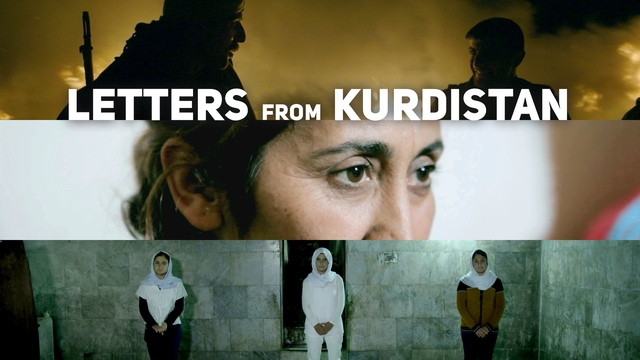The Producers

Reber Dosky - Director
Reber Dosky is a Kurdish-Dutch filmmaker. Living in The Netherlands since 1998, he studied film direction at the Netherlands Film Academy and completed his studies with The Call (2013), which traced the impact of war and displacement on the relation between a father and a son and won several awards on international film festivals. With The Sniper of Kobani (2015) Dosky achieved his international breakthrough, earning awards in Canada, Brazil, The Netherlands, Egypt, Italy, Japan and Mexico among others.
Making The Film

The film consists of three short videos: The Story of a Sniper, Meryem and Yezidi Girls, all shot in Kurdistan. The Sniper of Kobani is a portrait of Haron, a Kurdish fighter who came to the Syrian town of Kobani to end the IS occupation. Haron works as a sniper, amidst the enormous ruins of the city. In his hide-out, he reflects on his hopes and nightmares. Meryem was shot during the battle of Kobani, this film reveals the women at the heart of the fight against IS. With stoical perseverance and the aid of American airstrikes, these women are leading the fight for freedom. Yazidi Girls is a story about young Yazidi women and girls who were forced to become sexual slaves and convert to Islam. These two women escaped and returned to their home village on Mount Sinjar. In this video, they discuss their traumatic experience, their struggle to be accepted back by their community and the women and girls still held by Isis.
 Since 2013, the Kurds have been systematically terrorised by IS, as the caliphate pushed deeper into their ancestral homeland. Letters from Kurdistan brings together three uniquely tragic perspectives on the war ravaging the Middle East. A lonely sniper is haunted by the violence he has inflicted doing what he must to defend his people; three teenage Yazidi girls remain defiant despite suffering unimaginable cruelties at the hands of their captors; and a majority female militia defy expectations by holding out against the caliphate’s siege of Kobani. A harrowingly intimate insight into the mental as well as physical toll wrought by a most violent and brutal conflict.
Since 2013, the Kurds have been systematically terrorised by IS, as the caliphate pushed deeper into their ancestral homeland. Letters from Kurdistan brings together three uniquely tragic perspectives on the war ravaging the Middle East. A lonely sniper is haunted by the violence he has inflicted doing what he must to defend his people; three teenage Yazidi girls remain defiant despite suffering unimaginable cruelties at the hands of their captors; and a majority female militia defy expectations by holding out against the caliphate’s siege of Kobani. A harrowingly intimate insight into the mental as well as physical toll wrought by a most violent and brutal conflict.





